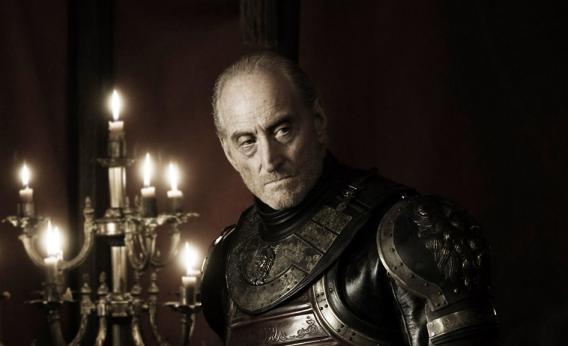Economics of Ice & Fire II: The Lannisters' Subprime Lending

I got two main objections to yesterday's argument that House Tyrell is in fact wealthier than House Lannister. One was that I'm neglecting the commercial wealth of Lannisport. That's true, but according to A Wiki of Fire and Ice, "Lannisport is smaller than King's Landing or Oldtown" and Oldtown is in—you guessed it—the Reach. A later post will explain why it's no surprise that the agriculturally oriented Reach supports a larger city than the mining-based Westerlands. But for now let's consider the other objection, that in addition to its gold mines, House Lannister possesses valuable assets in the form of debts incurred by the Iron Throne.
This is the fantasy equivalent of arguing that Cypriot banks are in fine shape despite enormous leverage because they own lots of Greek government bonds that count as low-risk under Basel II regulations. The Iron Throne, as it exists at the end of King Robert Baratheon's reign, is plainly insolvent. Those debts may have some value as part of Tywin Lannister's larger political strategy (more on this later) but economically they're worthless.
Note that Robert's debts aren't some kind of countercyclical stabilization policy. This is an agricultural economy governed by a real business cycle. Nor is he going into debt to finance productive investments. He's not improving Westeros' infrastructure. He's not strengthening the Wall. He's throwing feasts and tourneys. If he doesn't have the money he needs today, then he's not going to have the money he needs tomorrow either. That means a fortiori that he's not going to have the money to pay Tywin back. Making things worse, winter is coming! The Iron Throne needs to be saving during the fall to deal with the huge negative shock to income that's coming during the winter. Last but by no means least, Robert also owes money to the Iron Bank of Braavos. As the saying goes, "the Iron Bank will have its due" so any Lannister effort to recoup even a part of what it owes will have to content with the competing claims of the Iron Bank.
All this gives us one way to understand the Lannister zeal for power in King's Landing. In effect, Tywin is attempting to execute a debt-for-equity swap since his debts aren't actually recoverable. But that simply underscores the extent to which the loans to the Iron Throne are, themselves, worthless as financial assets.
My view is that this is no accident. Tywin is nominally disgusted by the "weakness" his father Tytos displayed in his failure to collect the money owed to him by other noble houses. But in practice, Tywin has behaved in the exact same way. The reason is that, as discussed previously, the notional gold wealth of the Lannisters is actually impossible to mobilize on a mass scale without simply sparking inflation. The best thing you can do with it is "spend" it in the form of non-recoverable loans to other prominent families in order to obtain good will. It's a reasonable strategy, given the fundamentals of the situation, but as we'll see in a subsequent post it's a strategy for the warm years that's going to be hard to maintain come winter.
